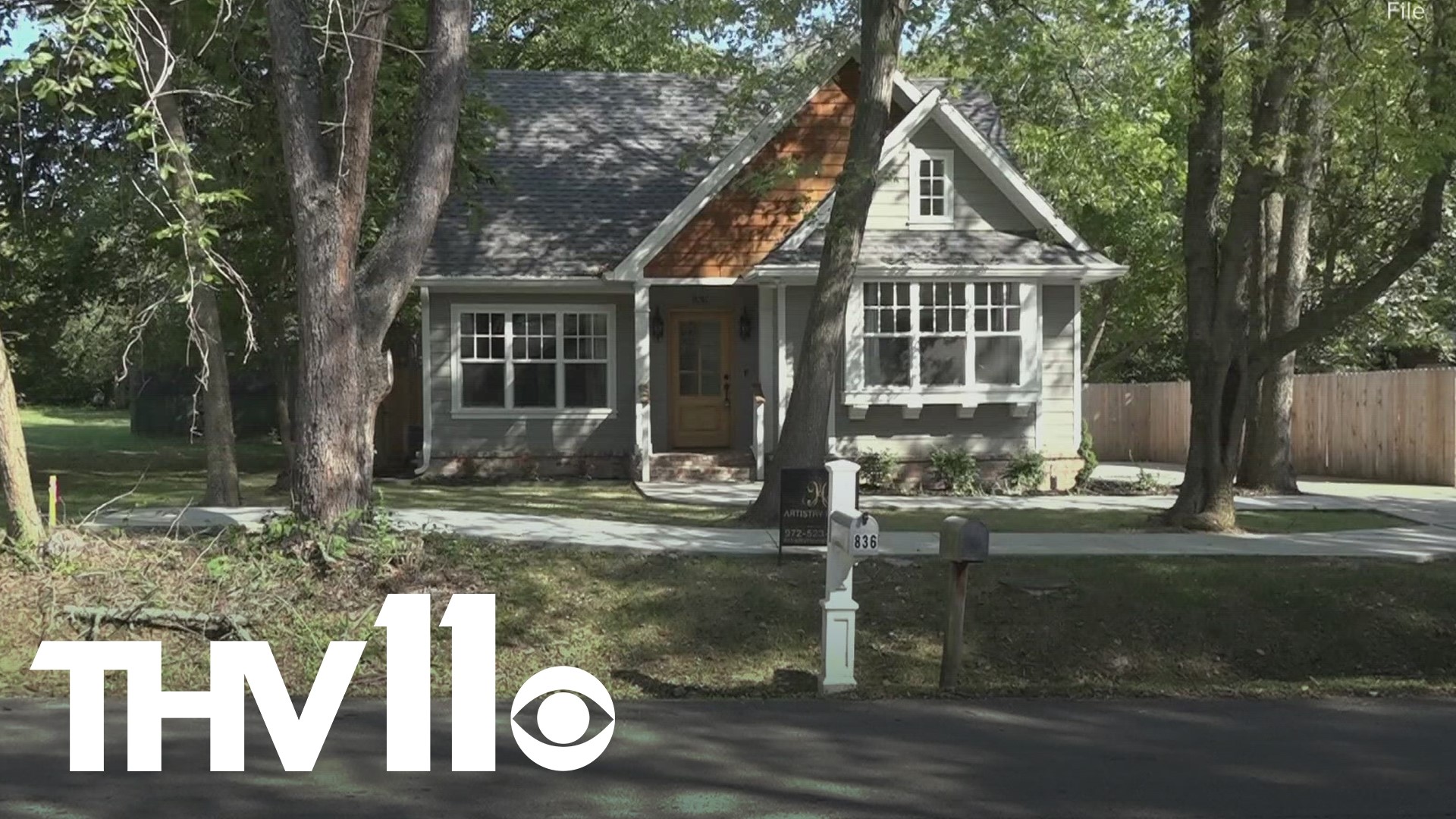HOT SPRINGS, Ark. — The travel revolution brought on by short-term rentals made possible by websites like Airbnb and Vrbo makes visiting your favorite destinations more accessible than ever.
But there's a flip side to that.
Those short-term rentals have made living or working in those places far more complex. The temporary nature of short-term rentals complicates the future challenge of city leaders in some of Arkansas's hot spots.
"Oaklawn, the lakes, the national park... have all done a great job of getting people to come here already," said Gary Troutman, president of the Greater Hot Springs Chamber of Commerce. "Why don't we just make that extra effort and ask them, 'Hey, why don't you come stay?'"
The answer to that question is partially answered because staying long-term comes with a hefty price tag.
"In 2018, the average price was $135,000 for a house here and now it's $225,000," said Staton Flurry, who has seen the change from a unique vantage point. "That's a $90,000 increase in four to five years."
Flurry is a leading owner of racehorses, starting Carbone as one of the favorites in the 2024 Rebel Stakes on Feb. 24. He grew up in both racing and Hot Springs real estate literally across the street from Oaklawn Park.
"I kind of transitioned from the parking and ice cream business to, when I came along, just a parking lot now," Flurry said.
On a corner of the lot also stands one of several rental properties he and his mother Dorothy have across the Spa City.
"The Airbnb market has really skyrocketed here," Flurry said. "Used to be you could find a house for $750 a month, all utilities paid, and you're lucky now if you can find one for $1200 or $1300, all utilities paid."
A similar dynamic is unfolding four hours to the northwest in the home of the state's flagship university.
"A lot of the more tourist-related activities, mountain biking, Razorback events, all of that is contributing to a lot of the housing affordability challenges we're having," Fayetteville Development Services Director Jonathan Curth said. "It's something we're agonizing about all over northwest Arkansas right now, given the relative attractiveness of the region."
For years, property owners in both cities could count on set patterns. The coming and going of college students in Fayetteville or the nomadic workforce that follows the winter-spring racing season at Oaklawn.
But now, short-term rentals allow investors to meet the rising demand of tourists every weekend, squeezing out those trying to live here, even part-time.
The initial response from the cities has been to require licenses to list a property and then cap the number of permits available.
"Seeing that the existing number of short-term rentals were generating the number of issues we were experiencing, and realizing that there was still a potential to have 300 or 400 more short-term rentals resulted in wanting to get a hard cap," said Curth, who oversees the process and enforcement of unlicensed properties.
"Our [city]council adopted a standard that allows us to potentially withhold city services if they do not cease," Curth added. "That would most prominently look like cutting off the property's water."
The caps went in place after debate in both cities. In Fayetteville, the cap was initially a percentage of properties. Then, once a hard cap went in place, a third-party auditor was hired to monitor violators, especially on Razorback football weekends.
In Hot Springs, longtime residents clashed with new-to-town investors, presenting an age-old challenge for leaders like Troutman.
"It's a fine line," Troutman said. "You want all the small business owners and short-term rental owners to succeed, but by the same token, you've got to have that delicate balance of workforce housing."
Troutman is particularly attuned to that balance after launching the Move to Hot Springs campaign shortly after taking the job six years ago.
The most visible aspect is a billboard along Highway 70 facing eastbound traffic, telling drivers, "You came to play, now come to stay."
Enforcement and market pressures appear to be calming things down, giving civic leaders time to catch their collective breath and plan a way forward.
"Everything, insurance, electricity, everything has really gone through the roof," Flurry said. "To be able to turn a profit on a short-term, it's almost impossible."
Troutman said other industries need help, too.
"You can't sit here and just let the short-term rentals press the market out of control," Troutman said. "We still need people to work in all our other industries. The tourism industry, but also manufacturing, retail, hospitals and all the other places. They all need employees."

